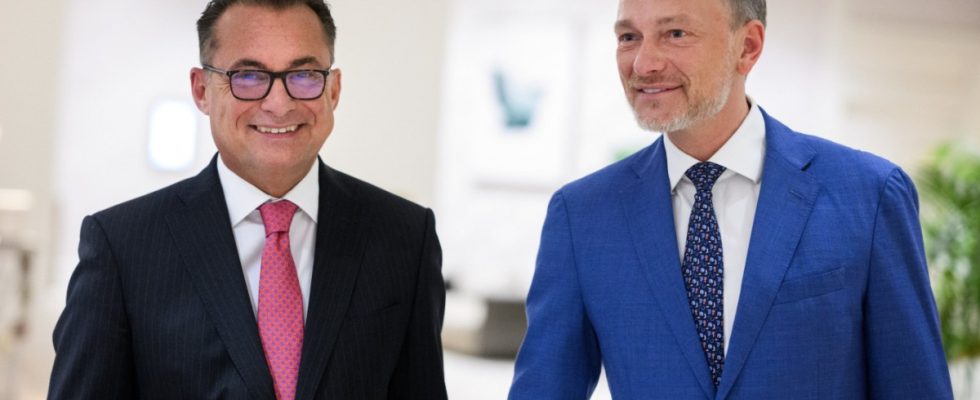Once again the German Finance Minister is in Washington in times of crisis; all summits have been crisis summits since the Russian invasion of Ukraine at the latest. Before the fall meeting of the International Monetary Fund (IMF), Hamas had just attacked Israel – before the spring meeting, Iran had just attacked Israel, and the world is anxiously awaiting Israel’s reaction.
Christian Lindner (FDP) also advises de-escalation, the word is often used during his appearance together with Bundesbank President Joachim Nagel in the American capital. There is currently a discussion here about whether the Republican-dominated House of Representatives will finally manage to send the aid package for Ukraine to the Democratic-dominated Senate this weekend.
In addition to representatives of the IMF, Lindner also met MPs and his colleague Janet Yellen, Joe Biden’s Treasury Secretary. Beyond the Federal Republican coalition bickering, he can or must concern himself with world politics on this trip. In addition to economic questions, there are geopolitical crises that not only cause a lot of suffering, but are also stressful for the economic situation, said Lindner. He reiterated Germany’s solidarity with Israel and asked Israel to prevent escalation.
Bundesbank President Nagel tells how the Russian representative at the G20 spoke about the climate goals. Then he felt “a chill run down his spine.” He thought to himself what would be possible without Russia’s war of aggression.
“We are pursuing restrictive fiscal policy.”
The dire world situation could distract a little from German bottlenecks; in terms of economic growth, the Federal Republic is at the bottom of the table among industrialized countries. When asked, Lindner said that “no one actually asked him about growth in Germany” in the USA. But everyone is convinced “of the turnaround potential” of the Germans. The treasurer also pointed out “the encouraging development of inflation” in Germany and the EU – “in all politeness, especially in comparison to the USA”. There, the Inflation Reduction Act fueled prices and produced higher deficits. “We are pursuing restrictive fiscal policy.”
In fact, Americans are not very amused when shopping and the incredible US national debt is a constant topic. The truth, however, is that Biden’s economic program, with its billions of dollars in investments, is a bit overheated, but much more dynamic than that of the frugal Germans.
The US economy is growing by 2.7 percent, in Germany the potential growth is put at 0.5 percent. The finance minister admits that that was 1.5 percent ten years ago and wants to use structural reforms to ensure that the number doubles in two or three years. We’ll see what the world looks like then and whether Donald Trump will soon rule America. The re-elected IMF head Kristalina Georgieva remains in office. You don’t change horses in the middle of the river, says Christian Lindner, so he quotes Abraham Lincoln in US style.

